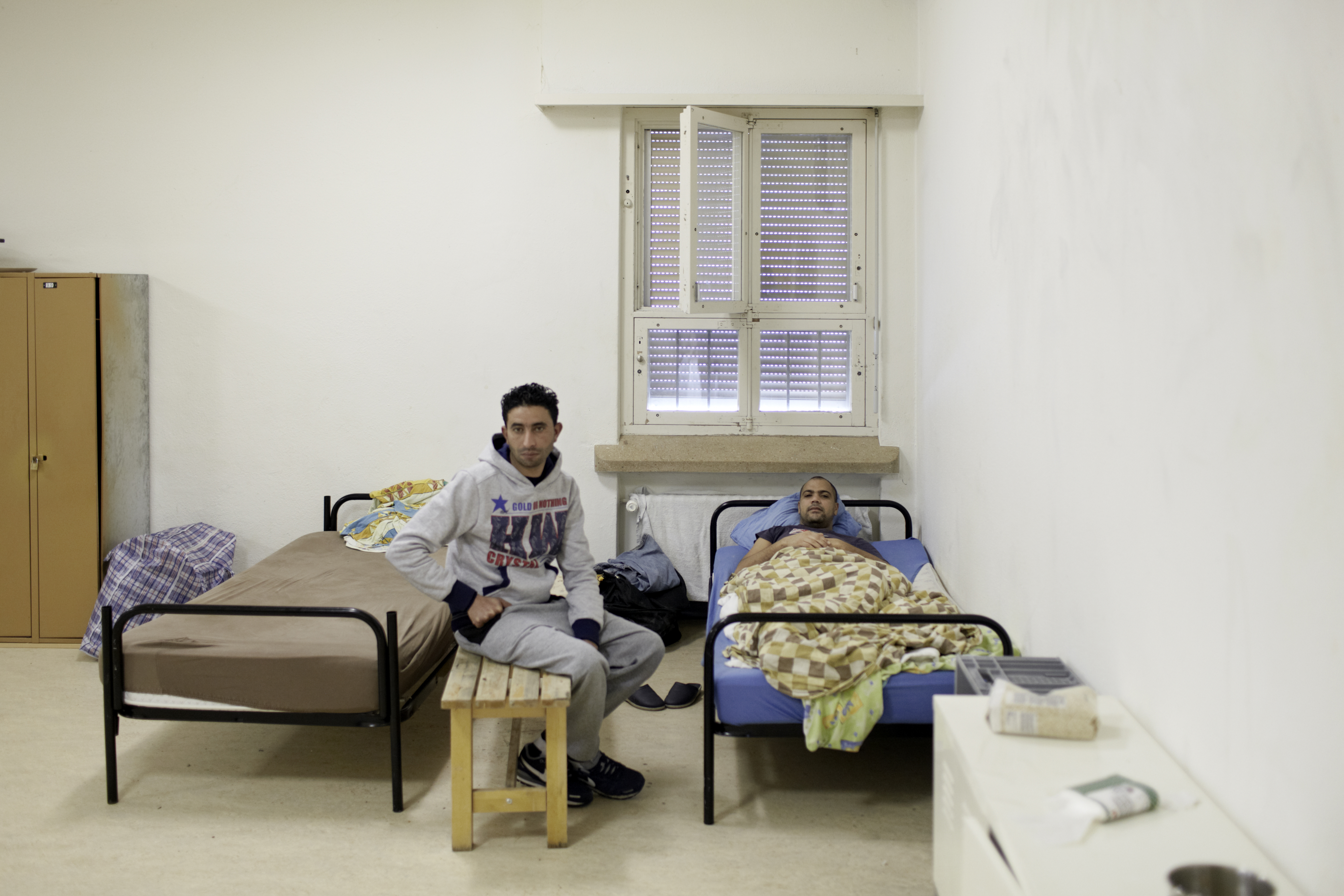
Latest asylum reform faces nationwide vote

Leftwing parties, trade unions and human rights groups are challenging a decision by parliament to restrict access to asylum and set up special centres to speed up the procedure. It is the latest in a long series of reforms of the Swiss asylum law.
For Moreno Casasola of the Solidarité sans Frontières group (Solidarity without Borders) voters have a choice between “being generous or being small-minded” on June 9.
He says the reform, in force since last September, is “unnecessary and unreasonable”. Other campaigners have described the amendments as “absurd and disgraceful” and accused the country of being an “accomplice to torture and death”.
“It is the most political reform and it targets the most vulnerable refugees – conscientious objectors and their families,” says Jo Lang, a leading member of the pacifist Switzerland without an Army group.
It is part of a wider reform package approved by parliament which includes a series of measures introduced with immediate effect.
They include suspending the possibility to hand in asylum requests at Swiss embassies as well as rejecting applications from conscientious objectors and deserters.
A legal basis was also created to allow asylum seekers labeled as troublemakers to be housed in separate centres.

More
Asylum applications over the years
Controversial measures
In an effort to speed up the creation of regular shelters the federal authorities were granted greater powers over the cantonal authorities.
The so-called urgent measures are limited to three years, but campaigners, notably from human rights and church groups, trade unions and the youth chapter of the Green Party, collected enough signatures to force a nationwide vote to reverse the moves.
The political centre-left is supporting the referendum, pitting it against the government and the major centrist and rightwing parties.
Legislation has been amended ten times in about three decades, including four referendums and two initiatives.
Attractive
Maximilian Reimann, member of parliament for the Swiss People’s Party, argues there is widespread opposition to asylum shelters and concern about criminal refugees.
“We do not tolerate the unruly behavior and breaches of our law,” he says. “The offenders will be housed in special centres so that the people who deserve our protection are safe.”
Reimann adds that Switzerland was the only country in Europe offering the possibility to apply for asylum at its embassies.
“That made us too attractive and the law needs to be changed,” he says. “Most other European countries have tightened their asylum legislation in the past years, making Switzerland one of the most liberal countries.”
The vote on the latest package of urgent measures by parliament is one of three separate reforms of the asylum law.
The referendum on June 9 includes the creation of special centres for unruly asylum seekers, scrapping asylum applications at Swiss embassies and refusing to accept requests by conscientious objectors.
The measures which came into force last year are valid for three years.
A second reform, approved by parliament last December, speeds the initial phase of the asylum procedure and streamlines welfare payments for asylum seekers across the country.
A third reform, to get underway later this month, is aimed at further tightening the asylum procedure at a federal level.
Abuses
The People’s Party was supported by a centre-right majority in parliament. They hope the fast track measures will discourage people from trying to come to Switzerland for purely economic reasons, and prevent abuses of the asylum system.
Not more than 20 per cent of all asylum seekers are granted refugee status, the parliamentary majority argued.
Leading members of the People’s Party have claimed that one in two asylum seekers is a criminal. The numbers are based, they said, on a study by legal experts from the University of Zurich.
However, the study authors have since vehemently rejected the allegations, criticising the rightwing for misinterpreting the data for populist purposes.
The political left has repeatedly accused the People’s Party of inciting a negative image of asylum seekers and creating a climate of fear among the Swiss population.
Pledges
For her part, Justice Minister Simonetta Sommaruga says the latest amendments are aimed at speeding up the asylum procedure.
“It does not restrict the right to asylum,” she pledged at the launch of the campaign for the June 9 ballot. She says the government is determined to give shelter to those people who need protection.
The package of urgent measures passed by parliament are compatible with international refugee standards, Sommaruga added.
She also stressed that the government is willing to consider the concerns of the local population when setting up new shelters.
Hans-Jürg Käser, head of the cantonal justice directors, agrees with the government plan to limit the autonomy of the 26 cantons, but he insists on being consulted to help find a compromise where local opposition is virulent.
In the past the authorities have repeatedly come in for criticism over plans to house asylum seekers in certain areas.
The referendum on the latest reform of the asylum law is one of two issues to come to a vote on June 9.
Voters also have a say on a proposal by the rightwing Swiss People’s Party to introduce the nationwide election of cabinet members.
Beside the nationwide ballots there are also a number votes at a cantonal and local level scheduled on June 9.
As a rule, Swiss citizens vote four times a year on a broad range of issues.
(With input from Armando Mombelli)

In compliance with the JTI standards
More: SWI swissinfo.ch certified by the Journalism Trust Initiative































You can find an overview of ongoing debates with our journalists here . Please join us!
If you want to start a conversation about a topic raised in this article or want to report factual errors, email us at english@swissinfo.ch.